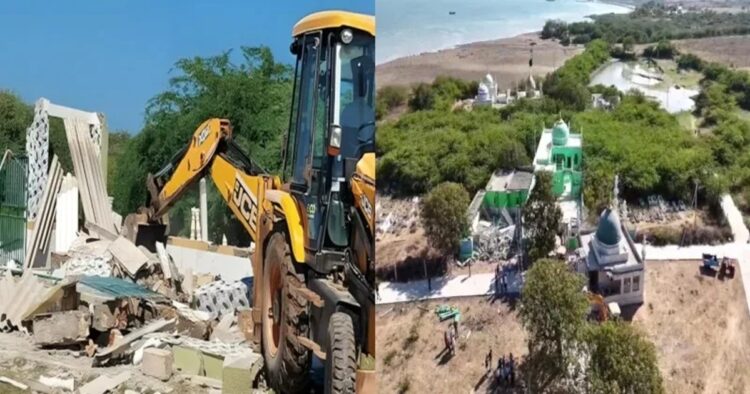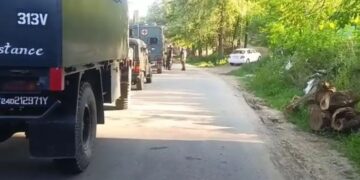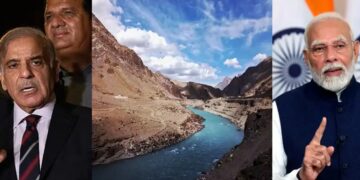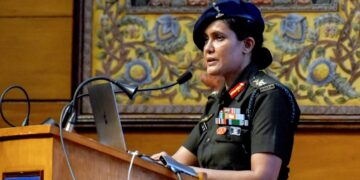The Gujarat High Court has dismissed a batch of petitions that sought protection for alleged illegal religious encroachments in Balapar village of Bet Dwarka. The court’s verdict has paved the way for the Gujarat government to immediately begin demolishing unauthorised dargahs and mosques constructed on government land in the name of Waqf.
The case revolved around the petition filed by Bhet Bhadela Muslim Jamat, which falsely claimed that the illegally occupied government lands were under the Waqf Board’s control. The Gujarat High Court, however, ruled against the petitioner, upholding the state’s stance that these constructions were unauthorised and violated land regulations. Following the court order, the administration promptly launched a demolition drive using bulldozers to remove the encroachments.
Justice Mauna M. Bhatt, while dictating the order, categorically stated, “I have considered everything regarding the user of land and all the decisions relied upon by all parties. The present petitions do not call for any consideration. All writ petitions are therefore dismissed.” The court also rejected the plea for an extension of interim relief, which had been granted earlier. One of the key aspects considered by the court was whether land usage over time could be a basis to claim it as Waqf property, especially when ownership records did not support such a claim.
The ruling clarified that merely using a piece of land for religious purposes does not make it a Waqf property unless it is officially registered as such. Furthermore, the court dismissed claims that the demolition violated due process, stating that notices had been served in advance, directing the removal of unauthorised constructions within three days.
The court emphasised that the government had acted within the legal framework, and the petitioner failed to prove ownership over the disputed properties. More significantly, the state presented intelligence reports highlighting that the region around Bet Dwarka had become a hub for anti-national activities, particularly narcotics smuggling. The counsel revealed that in the past three years, 38 fishermen from Dwarka were arrested by Pakistan and subsequently radicalised before being sent back to India. The misuse of illegally constructed religious structures was cited as a security concern, further strengthening the need for their demolition.

















Comments